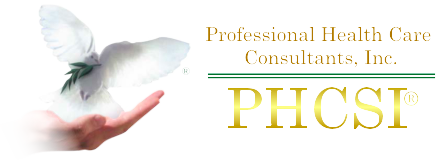Fore more inquiries, please call
- 888-534-8082 / 714-554-0878 / 949-681-8383
Fore more inquiries, please call
 Depression is a state of low mood and aversion to activity that can have a negative effect on a person’s thoughts, behavior, feelings, world view and physical well-being. Depressed people may feel sad, anxious, empty, hopeless, worried, helpless, worthless, guilty, irritable, hurt or restless. They may lose interest in activities that once were pleasurable, experience loss of appetite or overeating, have problems concentrating, remembering details, or making decisions and may contemplate or attempt suicide. Insomnia, excessive sleeping, fatigue, loss of energy, or aches, pains or digestive problems that are resistant to treatment may also be present.
Depression is a state of low mood and aversion to activity that can have a negative effect on a person’s thoughts, behavior, feelings, world view and physical well-being. Depressed people may feel sad, anxious, empty, hopeless, worried, helpless, worthless, guilty, irritable, hurt or restless. They may lose interest in activities that once were pleasurable, experience loss of appetite or overeating, have problems concentrating, remembering details, or making decisions and may contemplate or attempt suicide. Insomnia, excessive sleeping, fatigue, loss of energy, or aches, pains or digestive problems that are resistant to treatment may also be present.
Depressed mood is not necessarily a psychiatric disorder. It is a normal reaction to certain life events, a symptom of some medical conditions and a side effect of some medical treatments. Depressed mood is also a primary or associated feature of certain psychiatric syndromes such as clinical depression.
Depression is a common problem in older adults. The symptoms of depression affect every aspect of your life, including your energy, appetite, sleep, and interest in work, hobbies, and relationships.
Unfortunately, many depressed seniors fail to recognize the symptoms of depression, or don’t take the steps to get the help they need. There are many reasons depression in older adults and the elderly is so often overlooked:
As you grow older, you face significant life changes that can put you at risk for depression. Causes and risk factors that contribute to depression in older adults and the elderly include:
THE CURE WITHOUT DRUGS
If you’re depressed, you may not want to do anything or see anybody. But isolation and inactivity only make depression worse. The more active you are—physically, mentally, and socially—the better you’ll feel.
Exercise. Physical activity has powerful mood-boosting effects. In fact, research suggests it may be just as effective as antidepressants in relieving depression. The best part is that the benefits come without side effects. You don’t have to hit the gym to reap the rewards. Look for small ways you can add more movement to your day: park farther from the store, take the stairs, do light housework, or enjoy a short walk. Even if you’re ill, frail, or disabled, there are many safe exercises you can do to build your strength and boost your mood—even from a chair or wheelchair.
 Connect with others. Getting the support you need plays a big role in lifting the fog of depression and keeping it away. On your own, it can be difficult to maintain perspective and sustain the effort required to beat depression. You may not feel like reaching out, but make an effort to connect to others and limit the time you’re alone. If you can’t get out to socialize, invite loved ones to visit you, or keep in touch over the phone or email.
Connect with others. Getting the support you need plays a big role in lifting the fog of depression and keeping it away. On your own, it can be difficult to maintain perspective and sustain the effort required to beat depression. You may not feel like reaching out, but make an effort to connect to others and limit the time you’re alone. If you can’t get out to socialize, invite loved ones to visit you, or keep in touch over the phone or email.
Bring your life into balance. If you’re feeling overwhelmed by stress and the pressures of daily life, it may be time to learn new emotional management and emotional intelligence skills.
Other self-help tips to combat and prevent depression in the elderly:
This information was taken from: agingcare.com, soundhearing2030.org, wikipedia.org

Professional Health Care Consultants, Inc., also known as Professional Health Care Services, is a family-owned caregiver referral and consulting business. We specialize in managing and developing small businesses in the Home-Care Industry for non-medical, custodial and around-the-clock care. We offer caregivers, families and their loved ones all different services and several options that are affordable for them.
PHCSI and “Your Loved Ones are Our Loved Ones” are Registered Trademarks assigned to Professional Health Care Consultants, Inc.
COPYRIGHTS © 2020 Professional Health Care Services. All Rights Reserved.